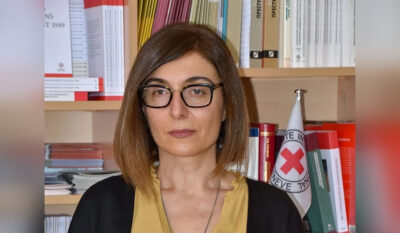By Haroutioun Diratzouian
The majority of the articles about the Armenian-Turkish protocols, which have appeared in the diasporan news media, express a favorable viewpoint with respect to the opening of the borders between Turkey and Armenia, mainly due to consideration of the economic advantages of such a step for both sides. Thus, it is reasonable to conclude that the criticisms of, and/or objections to, the protocols are about the terms, not their objective. The points of disagreement can be summarized with reference to three issues: genocide recognition, territorial demands and reparations, and Karabagh’s independence or annexation to Armenia.
Before touching on this issue, I wish to make an assertion. Since three major powers — America, Europe and Russia — are proponents of the opening of the border between Turkey and Armenia, the signing of a treaty, in which the interests of all sides are defended, must be considered inevitable. In other words, one must not expect that any protocol signed by the Armenian government shall incorporate terms which are solely in Armenia’s favor. It would not be incongruous to remind those, who consider themselves to be political experts, of Georgia’s situation, when she began to adopt a course that ran contrary to Russia’s interests.
Let us return to the aforementioned reservations. The Armenian Genocide is an undeniable fact, which Turkey cannot help but acknowledge in the end, but, to be realistic, we must accept that this will take time. The Turkish government cannot change its position from one day to the next, after denying the Genocide for practically a century and even pronouncing as guilty those citizens, who have accepted it. The discussion of this issue by historians is simply a means of gaining or losing time, depending on one’s perspective. In any event, any such discussion can only conclude with affirmation of the genocide. Meanwhile, the diasporan organizations must continue their efforts to get the world to accept the genocide, in order to put pressure on the Turkish government to change its hardened position in this regard. The protocols don’t contradict such activity, nor do they prevent it. In this connection, it is worth encouraging and closely cooperating with certain Turkish intellectuals who not only accept the genocide but are even endeavoring to make the reality known to their own people.
Any border agreement supposes the existence of a border, in order to be able to negotiate about its opening. The border to be opened between Turkey and Armenia is the one that is currently recognized internationally. We don’t wish to go into details about the historical conditions under which this boundary was drawn, since that won’t change anything from the reality. It is naïve to think that Turkey will enter any agreement stipulating the return of even a foot of our historical territory. In this regard, we believe with utmost certainty that forcibly seized lands are returned only through bloodshed. Treaties simply put down on paper the new imposed boundaries. The reoccupation of our historical lands, along with a few other conditions (a friendly powerful state, favorable political conditions, etc.) requires a strong army and modern weaponry, which can’t be had without a healthy economy. In other words, economic considerations must take priority in governmental decisions. The opening of the border will create the possibility of improving Armenia’s economic situation on the road to the realization of our dreams.
Turning to Artsakh, the protocols don’t reflect even the glimmer of any concession. This was already proven in reality when, before and after signing the protocols, the Turkish side attempted to make it conditional upon the resolution of the Karabagh conflict, but encountered the uncompromising stance of the Armenian side.
“Politics is the art of the possible,” said Bismarck. That is what our government in Armenia is doing. To the credit of Armenia’s statesmen, we must admit that they have formulated a very flexible agreement, according to which the Armeno-Turkish borders are to be opened without preconditions but, at the same time, Turkey’s president has a document in hand, which doesn’t compromise his country’s interests.







